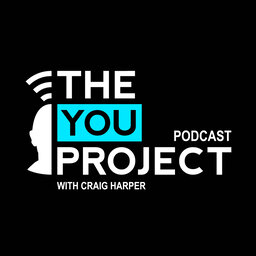#1682 Three Pounds Of Bacteria (In Your Gut) - Prof. Bill Sullivan
Did you know that you have about three pounds (1.4kgs) of bacteria living in your gut? You're welcome. Our favourite Molecular Biologist (Professor Bill Sullivan) is back talking 'Genes, Germs, and the Curious Forces That Make Us Who We Are' (as per the subtitle of his book ‘Pleased to Meet Me'). This chat is the first time we've actually discussed his book in any detail and to say his insights and stories are fascinating is a massive understatement. Enjoy.
 The You Project
The You Project


